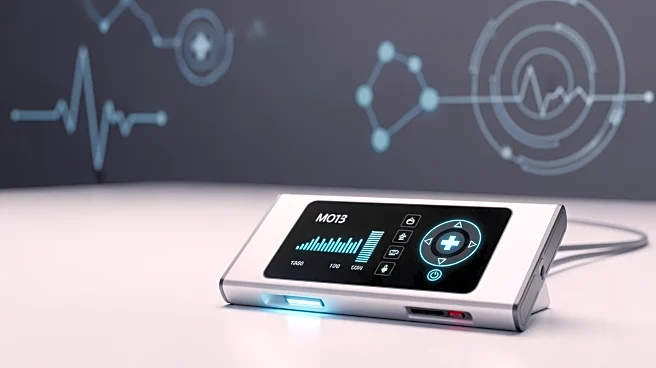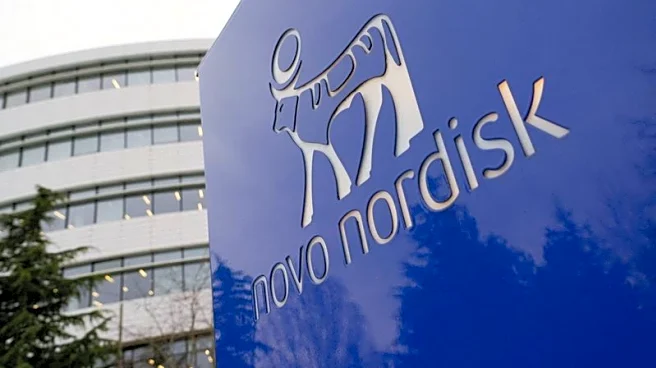What's Happening?
During the HLTH 2025 conference, several strategic partnerships and new product offerings were announced, showcasing significant advancements in healthcare technology. Oracle Health and Baylor College of Medicine are collaborating to leverage Oracle's
AI data platform for alcohol-related liver disease research. Certara has joined Veeva's AI Partner Program to enhance regulatory submissions, while Altera Digital Health and Health Gorilla have partnered to improve patient data interoperability. Eleos and Google Cloud introduced Polaris AI for behavioral health, and Ada Health teamed up with Fullspan Health to integrate clinical AI for personalized healthcare guidance. Verizon Business, in collaboration with Ericsson, is deploying 5G networks in healthcare settings to enhance connectivity. New product launches include Martlet.ai's RADV Audit Readiness Platform and Rhapsody's API Guardian, both aimed at improving healthcare data management and compliance.
Why It's Important?
These developments highlight a growing trend towards integrating advanced technologies like AI and 5G in healthcare, aiming to improve patient outcomes, streamline operations, and reduce costs. The partnerships and new offerings are set to enhance data interoperability, regulatory compliance, and personalized patient care. This shift is crucial as healthcare providers seek to address challenges such as clinician burnout, diagnostic gaps, and the need for efficient data management. The focus on AI-driven solutions reflects the industry's commitment to innovation, potentially transforming healthcare delivery and patient engagement. Stakeholders, including healthcare providers, technology companies, and patients, stand to benefit from these advancements, which promise to make healthcare more efficient and accessible.
What's Next?
As these partnerships and technologies are implemented, healthcare providers may experience improved operational efficiencies and patient care outcomes. The deployment of 5G networks and AI solutions could lead to further innovations in telehealth and remote patient monitoring. Stakeholders will likely monitor the impact of these technologies on healthcare delivery and patient satisfaction. Additionally, the success of these initiatives could encourage more collaborations between technology firms and healthcare institutions, driving further advancements in the industry.
Beyond the Headlines
The integration of AI and 5G in healthcare raises important considerations regarding data privacy and security. As healthcare systems become more interconnected, ensuring the protection of sensitive patient information will be paramount. Moreover, the reliance on advanced technologies may necessitate new regulatory frameworks to address potential ethical and legal challenges. The focus on women's health and personalized care also highlights a shift towards addressing specific healthcare needs, which could lead to more inclusive and equitable healthcare solutions.
















